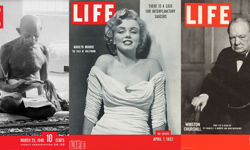Dr Kate Stone v Daily Mirror
Complaint
Dr Kate Stone complained to the Press Complaints Commission that the newspaper had breached the terms of Clause 12 (Discrimination) of the Editors’ Code of Practice. The complainant considered that the references to her transgender status in the articles were irrelevant to the story, in breach of Clause 12 (ii) of the Code. She also considered the reference to her former name intruded into her private life in breach of Clause 3 (Privacy) of the Editors’ Code of Practice.
Resolution
The complaint was resolved when the PCC negotiated the removal of the references to the complainant’s transgender status from the online articles, as the newspaper acknowledged that her gender status had not been relevant to the story. In light of the above, the newspaper also acknowledged that in these circumstances disclosure of the complainant's previous name without her consent was an unjustified intrusion into her private life. (Cl 3 and 12)
Dr Kate Stone v The Sun
Complaint
Dr Kate Stone complained to the Press Complaints Commission that the newspaper had breached the terms of Clause 12 (Discrimination) of the Editors’ Code of Practice. The complainant considered the use of the term “sex swap” in reference to her transgender status to be pejorative, in breach of Clause 12 (i) of the Code, and, furthermore, that the references to her gender status at all in the articles were irrelevant to the story, in breach of Clause 12 (ii) of the Code.
Resolution
The complaint was resolved when the PCC negotiated the removal of the references to the complainant’s transgender status from the online articles, as the newspaper acknowledged that her gender status had not been relevant to the story and that the use of the term “sex swap” in the articles was inappropriate. (Cl 12)
Dr Kate Stone v Daily Record
Complaint
Dr Kate Stone complained to the Press Complaints Commission that the newspaper had breached the terms of Clause 12 (Discrimination) of the Editors’ Code of Practice. The complainant considered the use of the term “sex swap” in reference to her transgender status to be pejorative, in breach of Clause 12 (i) of the Code, and, furthermore, that the references to her gender status at all in the articles were irrelevant to the story, in breach of Clause 12 (ii) of the Code.
Resolution
The complaint was resolved when the PCC negotiated the removal of the references to the complainant’s transgender status from the online articles, as the newspaper acknowledged that her gender status had not been relevant to the story and that the use of the term “sex swap” in the articles was inappropriate. (Cl 12)
Dr Kate Stone v The Scottish Sun
Complaint
Dr Kate Stone complained to the Press Complaints Commission that the newspaper had breached the terms of Clause 12 (Discrimination) of the Editors’ Code of Practice. The complainant considered the use of the term “sex swap” in reference to her transgender status to be pejorative, in breach of Clause 12 (i) of the Code, and, furthermore, that the references to her gender status at all in the articles were irrelevant to the story, in breach of Clause 12 (ii) of the Code. She considered the reference to her former name intruded into her private life in breach of Clause 3 (Privacy) of the Editors’ Code of Practice.
Resolution
The complaint was resolved when the PCC negotiated the removal of the references to the complainant’s transgender status from the online articles, as the newspaper acknowledged that her gender status had not been relevant to the story and that the use of the term “sex swap” in the articles had been inappropriate. (Cl 3 and 12)
Dr Kate Stone v The Daily Telegraph
Complaint
Dr Kate Stone complained to the Press Complaints Commission that the newspaper had breached the terms of Clause 12 (Discrimination) of the Editors’ Code of Practice. The complainant considered that the reference to her transgender status in the article was irrelevant to the story, in breach of Clause 12 (ii) of the Code.
Resolution
The complaint was resolved when the PCC negotiated the removal of the reference to the complainant’s transgender status from the online article, as the newspaper acknowledged that it had not been relevant to the story. (Cl 12)
Dr Kate Stone v Daily Mail
Complaint
Dr Kate Stone complained to the Press Complaints Commission that the newspaper had breached the terms of Clause 12 (Discrimination) of the Editors’ Code of Practice. The complainant considered that the reference to her transgender status in the article was irrelevant to the story, in breach of Clause 12 (ii) of the Code.
Resolution
The complaint was resolved when the PCC negotiated the removal of the reference to the complainant’s transgender status from the online article, as the newspaper acknowledged that it had not been relevant to the story. (Cl 12)
European Commission v The Sunday Telegraph
Complaint
The European Commission complained to the Press Complaints Commission that a series of articles concerning migration by EU citizens to the UK had inaccurately reported the economic status of those migrants, and their entitlement to welfare, in breach of Clause 1 (Accuracy) of the Editors’ Code of Practice.
Resolution
The complaint was resolved after the PCC negotiated the publication of the following clarification, and amendments to the online articles:
Coverage on Oct 20, 2013 about EU migration stated that EU citizens seeking work in Britain are eligible for non-contributory Jobseekers’ Allowance and that the European Commission says that access to Britain’s welfare system should be unrestricted. In fact, to receive Jobseekers’ Allowance, EU nationals must pass the Habitual Residence Test agreed by all EU Member States. EU law also allows the UK to refuse social assistance benefits, such as housing benefit, to certain categories of EU nationals, including those seeking a first job in the UK. (Cl 1)
Richman v Daily Mail (MailOnline)
Complaint
Dr Michael Richman complained through solicitors, under Clause 1 (Accuracy) of the Editors’ Code of Practice, that an article inaccurately stated that he had been arrested in 2003, and that he had faced a charge of vandalism. Dr Richman’s representatives said that pursuant to California statute he had not been arrested as he had successfully completed a deferred entry of judgement program, and that he was never charged with vandalism.
Resolution
The complaint was resolved after the PCC negotiated the removal of the reference to a vandalism charge and the publication of the following revised clarification:
Following publication of this article, we have been made aware that, in May 2003, Dr Richman entered a plea of no contest to a charge of being under the influence of a controlled substance as part of a negotiated deal to allow him to enter a deferred entry of judgment program that would ultimately result in the charge being expunged. He did not face a vandalism charge. We are happy to make this clear. (Cl.1)
Chatur v Daily Mail (Mail Online)
Complaint
Mr Prakhar Chatur complained to the Press Complaints Commission that the newspaper had published an inaccurate map in breach of Clause 1 (Accuracy) of the Editors’ Code of Practice. The complainant was concerned that the newspaper had published a colour coded map, showing the most popular countries in the world for holidays, which displayed the Indian state of Jammu and Kashmir in a different colour to the rest of India. The complainant was concerned that readers would be misled into understanding that the state was not part of India.
Resolution
The newspaper was unable to amend the map, as it had been provided by another company, but added the following statement to the article:
We would like to make clear that, while the state of Jammu and Kashmir appears in a different colour to the rest of India on Movehub's map of the popular countries in the world, it is indeed part of India.
The complaint was resolved on that basis. (Cl 1)










